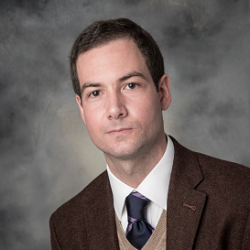Sex disparity in oronasal presentations of canine transmissible venereal tumour
A Strakova, A Baez‐Ortega, J Wang, EP Murchison
Veterinary Record, e1794
2022
Somatic mutation rates scale with lifespan across mammals
A Cagan, A Baez-Ortega, N Brzozowska, F Abascal, THH Coorens, ...
Nature 604 (7906), 517-524
2022
The evolution of two transmissible leukaemias colonizing the coasts of Europe
AL Bruzos, M Santamarina, D García-Souto, S Díaz, S Rocha, J Zamora, ...
bioRxiv
2022
The evolution of two transmissible cancers in Tasmanian devils
MR Stammnitz, K Gori, YM Kwon, E Harry, FJ Martin, K Billis, Y Cheng, ...
bioRxiv
2022
Searching for transmissible cancers among the mussels of Europe
A Baez‐Ortega, EP Murchison
Molecular Ecology 31, 719-722
2021
As cancer grows old
A Baez-Ortega
Science 374 (6571), 1066-1066
2021
Aberrant integration of Hepatitis B virus DNA promotes major restructuring of human hepatocellular carcinoma genome architecture
EG Alvarez, J Demeulemeester, P Otero, C Jolly, D Garcia-Souto, ...
Nature Communications 12, 6910
2021
Somatic mutation landscapes at single-molecule resolution
F Abascal, LMR Harvey, E Mitchell, ARJ Lawson, SV Lensing, P Ellis, ...
Nature 593 (7859), 405-410
2021
Evolution and lineage dynamics of a transmissible cancer in Tasmanian devils
YM Kwon, K Gori, N Park, N Potts, K Swift, J Wang, MR Stammnitz, ...
PLoS Biology 18 (11), e3000926
2020
The somatic evolution of the canine transmissible venereal tumour
A Baez Ortega
University of Cambridge
2020
Recurrent horizontal transfer identifies mitochondrial positive selection in a transmissible cancer
A Strakova, TJ Nicholls, A Baez-Ortega, M Ní Leathlobhair, AT Sampson, ...
Nature Communications 11 (1), 1-11
2020
Pan-cancer analysis of whole genomes
The ICGC/TCGA Pan-Cancer Analysis of Whole Genomes Consortium
Nature 578 (7793), 82-93
2020
Pan-cancer analysis of whole genomes identifies driver rearrangements promoted by LINE-1 retrotransposition
B Rodriguez-Martin, EG Alvarez, A Baez-Ortega, J Zamora, F Supek, ...
Nature Genetics 52, 306-319
2020
Somatic evolution and global expansion of an ancient transmissible cancer lineage
A Baez-Ortega, K Gori, A Strakova, JL Allen, KM Allum, L Bansse-Issa, ...
Science 365 (6452), eaau9923
2019
Whole-exome sequencing identifies somatic mutations associated with mortality in metastatic clear cell kidney carcinoma
A Mendoza-Alvarez, B Guillen-Guio, A Baez-Ortega, C Hernandez-Perez, ...
Frontiers in Genetics 10, 439
2019
sigfit: flexible Bayesian inference of mutational signatures
K Gori, A Baez-Ortega
bioRxiv, 372896
2018
The origins and vulnerabilities of two transmissible cancers in Tasmanian devils
MR Stammnitz, THH Coorens, KC Gori, D Hayes, B Fu, J Wang, ...
Cancer Cell 33 (4), 607-619. e15
2018
Germline determinants of the somatic mutation landscape in 2,642 cancer genomes
SM Waszak, G Tiao, B Zhu, T Rausch, F Muyas, B Rodriguez-Martin, ...
bioRxiv, 208330
2017
Computational approaches for discovery of mutational signatures in cancer
A Baez-Ortega, K Gori
Briefings in Bioinformatics 20 (1), 77-88
2017
Streptococcal group B integrative and mobilizable element IMESag-rpsI encodes a functional relaxase involved in its transfer
F Lorenzo-Diaz, C Fernández-Lopez, PE Douarre, A Baez-Ortega, ...
Open Biology 6 (10), 160084
2016

